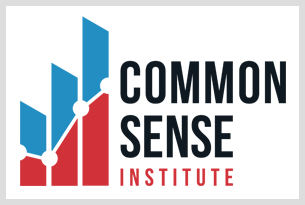FOR IMMEDIATE RELEASE
REMI Partnership releases: “What’s at Stake with the Colorado Public Option? Key Questions for Guiding the Discussion”
Denver, CO – As lawmakers grapple with the potential impact of a state public option, today, the REMI partnership releases a white paper that poses the outstanding questions and unintended consequences related to the public option.
The study asks a series of questions about the possible impacts of a public option across each health care stakeholder group including patients, hospitals, insurance carriers, employers and state government.
“The discussion surrounding the establishment of a public option for insurance in Colorado, has driven a thoughtful discussion about health care and many drivers of rising costs, yet those same discussions have limited the scope of trying to solve the problem,” said Chris Brown, Director of Policy and Research for the Common Sense Policy Roundtable. “Focusing exclusively on reducing insurance premiums for some in the individual insurance market via direct government actions, could come at the expense of all other health care stakeholders, including patients, employers, insurance carriers, hospitals and others.”
According to the study, establishing price caps does not address the underlying causes of high prices and only treats the symptoms.
“Savings resulting from government set rates passed to consumers have to come from somewhere, and by just lowering negotiated rates, without truly addressing underlying costs, a public option stands to benefit a few Colorado consumers, at the expense of every other stakeholder,” said Richard Rush, Managing Partner at GERICK and one of the authors of the study.
The study recommends policymakers consider the following before proceeding with the public option:
- Does the public option solve the originally defined problem?
- The precedent of intervening in private markets through rate caps and requirements of private companies to sell a specific product.
- The pace of regulatory change and incorporation of multiple other state and federal policy actions with still unknown results.
- What trade-offs are necessary and acceptable: how many additional insureds and lower cost for a segment of the population are acceptable for this level of disruption?
- What data needs to be incorporated and constituents to be heard?
Read the full study and key findings here.
###
About the REMI Partnership: Common Sense Policy Roundtable, Colorado Concern, Colorado Association of REALTORS®, Colorado Bankers Association, and Denver South Economic Development Partnership have partnered to develop independent, fact-based analysis that quantifies the broader economic impacts associated with policy changes. The partnership has provided Colorado lawmakers, policymakers, business leaders, and citizens with greater insight into the economic impact of public policy decisions that face the state and surrounding regions.
About Common Sense Policy Roundtable: Common Sense Policy Roundtable is a non-profit, free enterprise think tank dedicated to the protection and promotion of Colorado’s economy.

